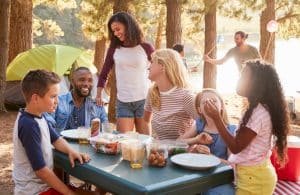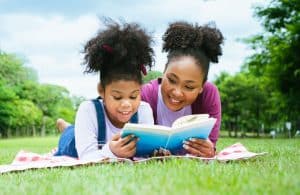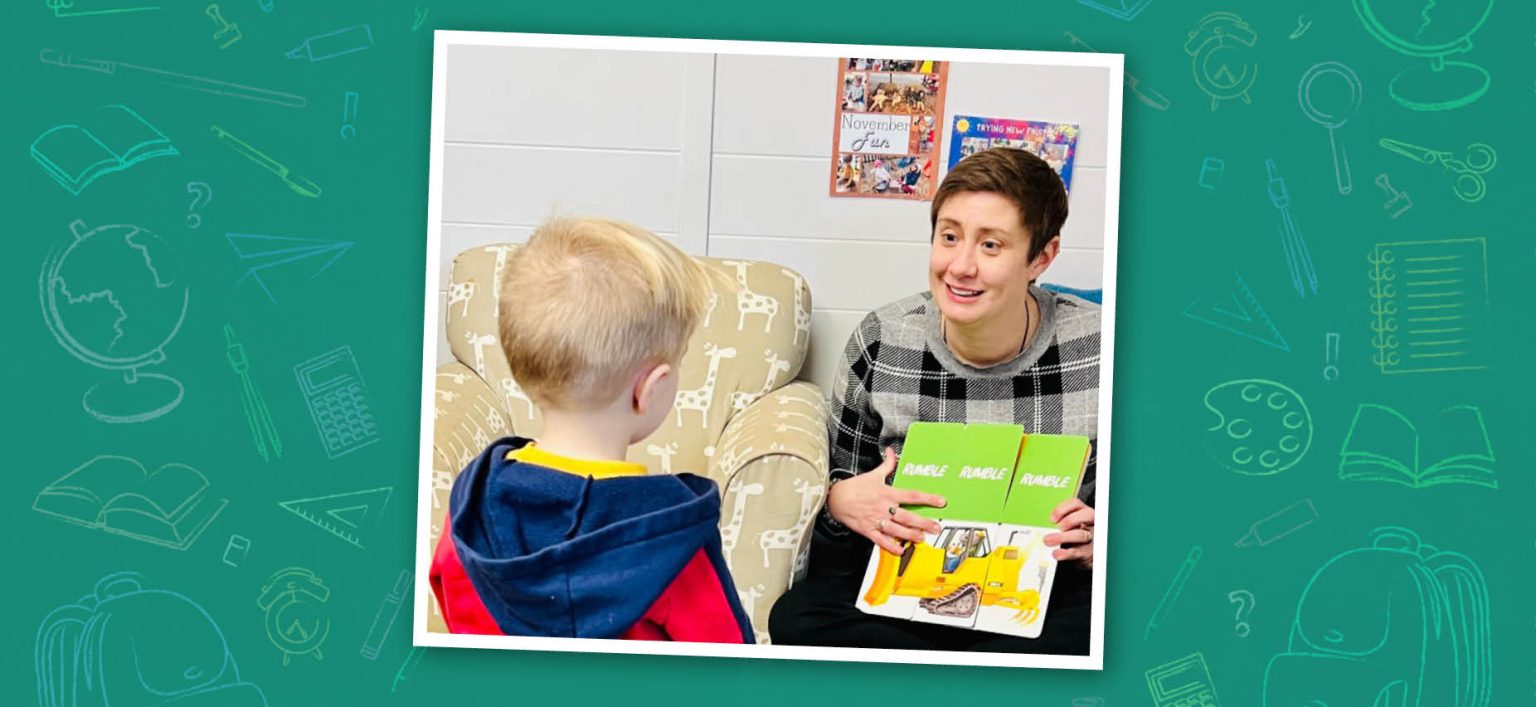1. Can you tell us a little about the Creative Environment Day School and the programs that you offer?
The Creative Environment Day School was started in 1966 by my grandmother, Sheila C. Brittain. She saw a need in the community for a safe, welcoming place for families. At that time, mothers were going back to work, and she saw that there was no full-day school in the area. So, she created it. It started out in a church for a few years, and then she bought the building that we are currently in, and we have been here ever since.
Our program starts at 18 months, and during the school year, we go up to 4 years old with a before- and after-school program for the Fayetteville-Manlius School District. So, if your child is in kindergarten through fourth grade at that school district, you can drop them off here before work, they can get breakfast if you want, and we put them on the bus and send them to school. The afternoon is the reverse. If you work late or you need care after school for your school-age child, they come from the school to here, and we provide them with an afternoon snack and recreation fun, some cool-down time, and some decompression time.
For our school year for the 18 months through 4-year-olds, we currently have four total classes: two toddler classes, a 3-year-old class, and a 4-year-old class. We have a full academic day. They do art, music, science, nature, and social studies—all of the things, just at the level that is appropriate for them. We also participate in the Play to Learn curriculum, so it’s learning through play. We get messy, we get dirty, and we have fun. We do all sorts of hands-on things.
One of our other focuses is the social-emotional development of a child. That is one of the things we build on, as well as having a strong home and school connection. We encourage parents to come; we want to make sure that they feel comfortable and that their kids feel comfortable. We have had parents say they wanted to stop by and read a book on a day off. We very much want to be a part of their lives as well as part of the community. We take walking field trips to the fire department that’s a block away. We take walking field trips to the post office that’s a block away. We have the police officers from the Manlius Police Department come in. They talk about Halloween safety. We’re trying to implement more of these things—maybe car seat checks eventually.
Being part of the village of Fayetteville and the community was one of the main focuses of my grandmother. The community was very important to her, and that’s something that is near and dear to my heart. I want to care for underprivileged children in the area. Every year, we do a holiday food drive. So, if we do anything, it’s very locally tied. As much of our supplies as we can get are from local or small companies…We really try to stay community-based and support the community, and in turn, they support us.
2. What would you say makes the school unique?
Everything about this place is unique…I’ve had parents say that this is like walking into grandma’s house. This is a warm, nurturing, and comforting environment. We are locally owned. We are the only ones. We’re not a franchise. We have been family-owned since the beginning. Like I said previously, my grandmother started the school in 1966, and when she passed away almost four years ago, she left ownership of the building and the company to my mother. I took over the directorship in 2022, and this has been my life goal: to be the next generation.
We have a very good staff that is very loving, very kind, and very supportive. It’s really kind of like a second home. We’ve had families that started here with their children who turned 18 months old, and they’ve been here all the way through kindergarten. Parents have cried together at our graduations because now they have to go to separate public schools. It’s just a very good sense of community; it’s not like walking into a place that’s cookie-cutter. We’re definitely not cookie cutter, besides the white picket fence outside of our building. We also offer a lot more recreation-based instruction than I believe other schools have. We take pride and care in everything that we do, and it has always been for the safety, education, and welfare of the children and their families.
3. What is your favorite part of your role as director?
My favorite part is interacting and engaging with the families. I have sat here and cried with parents whose children are sick, and they don’t know what’s going on. I’ve cried with parents who have lost their parents, and they’re like, ‘How do I tell my child?’ And just being here with the kids. Learning their interests, seeing their faces light up or their smiles, or when they’ve been working on something, trying to learn something, trying to master something, and it does, and they just look up at you with this wide-eyed, ‘I did it.’ That’s what I’m all about. I love being in the classroom. I love forming those relationships with children. I have employees now who came here as children, and they wanted to come back as high school juniors and seniors, and came to me and said, ‘Can I work on the after-school program? Can I work on your summer camp because I had so much fun here? I want to pass it on.’ And that’s really what it’s all about… This is my home. This is where I’ve been my entire life, and I joke that I’ve been here more than any home I have ever lived in.
Know an educator who deserves a mention? Email courtneyk@familytimescny.com.





